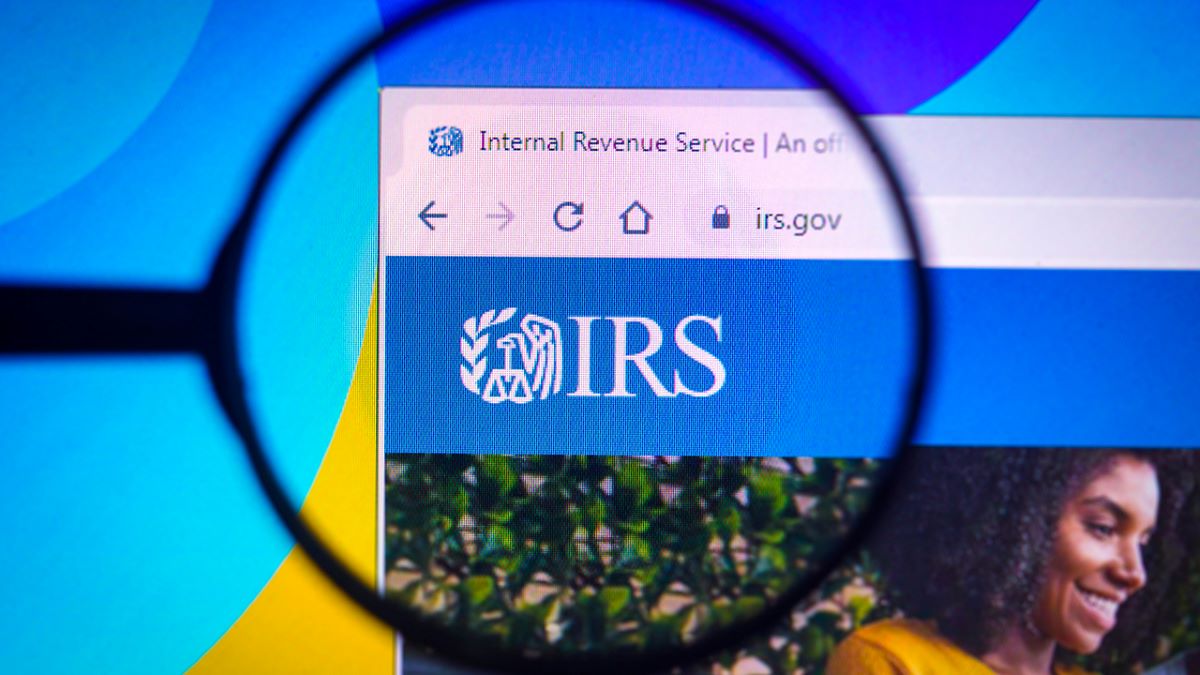

Finance
How To Get An Insurance Job
Published: November 18, 2023
Looking for a career in finance? Learn how to land an insurance job and kickstart your finance career with our expert tips and guidance.
(Many of the links in this article redirect to a specific reviewed product. Your purchase of these products through affiliate links helps to generate commission for LiveWell, at no extra cost. Learn more)
Table of Contents
Introduction
Getting a job in the insurance industry can be a rewarding and promising career choice. With its diverse range of opportunities and the stability it provides, the insurance sector attracts individuals who are eager to make a difference and help clients navigate the complexities of risk management. Whether you are a recent graduate or looking for a career change, this article will guide you through the essential steps to land your dream insurance job.
Insurance jobs encompass various sectors such as property and casualty, life and health, commercial, and reinsurance. Each sector offers unique roles and responsibilities, making it important to identify the specific area that aligns with your skills and interests. Before diving into the job search process, there are several qualifications and educational requirements to consider.
Typically, a high school diploma or equivalent is the minimum educational requirement for entry-level insurance jobs. However, many positions may require a bachelor’s degree in a related field such as finance, business administration, or economics. A degree can provide a solid foundation in insurance principles and industry knowledge, increasing your chances of landing a desirable position.
In addition to formal education, obtaining certifications and training can significantly boost your credibility and attractiveness as a candidate. Industry-specific certifications such as the Chartered Property Casualty Underwriter (CPCU) or Certified Insurance Counselor (CIC) demonstrate your expertise and commitment to professional growth. Training programs offered by insurance companies or professional organizations can also provide valuable skills and knowledge that employers seek.
Once you have attained the necessary qualifications, it’s time to develop effective job search strategies. Start by creating a compelling resume and cover letter that highlight your relevant skills, experience, and achievements. Tailor each application to match the requirements of the specific job you are applying for, emphasizing your understanding of insurance products, regulations, and customer service.
Qualifications and Education
When pursuing a career in the insurance industry, certain qualifications and education can greatly enhance your chances of securing a job and advancing in your chosen field. While the specific requirements may vary depending on the position and company, there are some general guidelines to follow.
A high school diploma or equivalent is typically the minimum educational requirement for entry-level insurance jobs. However, having a bachelor’s degree can provide a competitive edge and open up more opportunities for advancement. Consider pursuing a degree in a relevant field such as finance, business administration, economics, or risk management.
In addition to formal education, acquiring industry-specific certifications can demonstrate your expertise and dedication to professional growth. For example, the Chartered Property Casualty Underwriter (CPCU) designation is widely recognized in the insurance industry and signifies a high level of knowledge in property and casualty insurance. Other certifications, such as the Certified Insurance Counselor (CIC) or Certified Risk Manager (CRM), can also enhance your credibility as a candidate.
Moreover, participating in training programs and workshops can provide valuable skills and knowledge that employers are looking for. Many insurance companies offer training programs for new hires, covering topics like underwriting, claims handling, and customer relationship management. Taking advantage of these opportunities can give you a solid foundation in the industry and increase your chances of securing a job.
Furthermore, it’s important to stay up-to-date with the latest industry trends and regulations. Insurance is a constantly evolving field, and staying informed can help you remain competitive and adapt to changes in the market. Consider joining professional organizations, attending conferences, and subscribing to industry publications to stay informed about industry developments.
While qualifications and education are crucial, it is also important to develop key skills that are valued in the insurance industry. Strong communication skills, both written and verbal, are essential for effectively communicating insurance policies and addressing client needs. Attention to detail is also crucial in insurance, as accuracy is paramount when assessing risks and determining coverage.
Additionally, analytical and problem-solving skills are valuable in roles such as underwriting or claims adjustment. These skills enable you to assess risk probabilities, analyze data, and make informed decisions. Lastly, having strong interpersonal skills and being customer-oriented can enhance your ability to build relationships with clients and provide exceptional service.
Training and Certifications
To excel in the insurance industry and enhance your career prospects, it is important to continually invest in your professional development through training and certifications. These opportunities not only broaden your knowledge base but also demonstrate your commitment to excellence in the field.
Many insurance companies offer training programs for employees, particularly those in entry-level positions. These programs typically cover various aspects of the insurance business, such as underwriting, claims management, risk assessment, and customer service. By participating in these programs, you can gain a solid understanding of industry practices and policies, as well as develop the necessary skills to succeed in your role.
In addition to company-sponsored training, there are numerous professional organizations and associations that offer specialized insurance courses and workshops. These courses range from fundamental insurance principles to advanced topics like loss control, actuarial science, and insurance law. Investing in these educational opportunities can significantly enhance your knowledge and expertise, making you a valuable asset to potential employers.
Obtaining relevant certifications is another way to distinguish yourself in the insurance industry. Certifications demonstrate your commitment to professional growth and validate your skills and knowledge. One popular certification in the field is the Chartered Property Casualty Underwriter (CPCU), offered by the Institutes. This designation signifies a high level of expertise in property and casualty insurance and can open doors to advanced career opportunities.
Other certifications that you may consider pursuing include the Certified Insurance Counselor (CIC), the Certified Risk Manager (CRM), and the Associate in Risk Management (ARM). These certifications focus on particular areas within the insurance field, such as risk assessment, client counseling, and risk management. By obtaining these certifications, you can enhance your credibility, expand your skill set, and potentially increase your earning potential.
It is important to research and select certifications that align with your career goals and the specific area of insurance you are interested in. Consider factors such as the reputation and recognition of the certifying organization, the syllabus and curriculum of the certification program, and the requirements for obtaining and maintaining the certification.
Continuing education is also crucial in the insurance industry. Many certifications require ongoing professional development to maintain their validity. This could include attending seminars, conferences, or participating in online courses to stay up-to-date with industry trends, regulatory changes, and best practices.
Ultimately, investing in training and certifications demonstrates your commitment to professional growth and can give you a competitive advantage in the job market. By continually expanding your knowledge and skills, you can position yourself as a highly qualified and sought-after insurance professional.
Job Search Strategies
When it comes to searching for a job in the insurance industry, having a well-thought-out strategy can greatly increase your chances of finding the right opportunity. Here are some effective job search strategies to help you land your dream insurance job:
1. Identify your career goals: Before starting your job search, take time to think about your long-term career goals. Determine which sector of the insurance industry you want to work in and the specific role you are interested in. This will help you tailor your search and focus on the positions that align with your aspirations.
2. Network: Networking is a powerful tool in any job search. Reach out to industry professionals, attend industry events, and join professional organizations related to insurance. Networking can help you learn about potential job openings, gain insider information, and establish valuable connections that can lead to job opportunities.
3. Use online job boards: Utilize online job boards dedicated to the insurance industry to search for open positions. Websites such as Indeed, LinkedIn, and Glassdoor often have a variety of insurance job listings. Use relevant keywords and filters to narrow down your search and find positions that match your skills and qualifications.
4. Research insurance companies: Take the time to research insurance companies that interest you. Learn about their mission, values, and company culture. Look for opportunities to showcase your knowledge of the company during the application and interview process, as this demonstrates your genuine interest and commitment to the role.
5. Utilize social media: Leverage social media platforms like LinkedIn to create a professional presence and connect with industry professionals. Join insurance-related groups and engage in discussions to showcase your expertise and stand out to potential employers. Additionally, follow insurance companies and industry thought leaders to stay informed about job opportunities and industry trends.
6. Enhance your online presence: Ensure that your online presence is professional and reflects your skills and qualifications. Update your LinkedIn profile, optimize your resume for online searches, and consider creating a personal website or portfolio to showcase your work and accomplishments.
7. Attend career fairs: Career fairs often offer opportunities to meet with recruiters from insurance companies and learn more about available positions. Dress professionally, bring copies of your resume, and be prepared to make a strong impression in a short amount of time.
8. Consider internships or entry-level positions: Sometimes, starting with an internship or entry-level position can be a stepping stone to a more advanced role in the insurance industry. These positions allow you to gain valuable experience, develop industry knowledge, and build a network of contacts within the field.
Remember to tailor your application materials, including your resume and cover letter, to each specific job you apply for. Highlight relevant skills and experiences that showcase your understanding of the insurance industry and your ability to succeed in the role.
By utilizing these job search strategies, you can position yourself for success in finding the right insurance job that aligns with your career goals and aspirations.
Resume and Cover Letter
When applying for a job in the insurance industry, your resume and cover letter play a crucial role in showcasing your qualifications, skills, and experience. Here are some tips to help you create a standout resume and cover letter:
1. Highlight relevant experience: Tailor your resume to include relevant work experience that aligns with the requirements of the insurance job you are applying for. Emphasize any experience you have in the insurance industry, such as internships, previous roles, or projects related to risk assessment, claims handling, or customer service.
2. Showcase your skills: Include a section on your resume highlighting the skills that are valuable in the insurance industry. This may include strong analytical skills, attention to detail, communication skills, proficiency in insurance software, or knowledge of insurance regulations and policies.
3. Quantify your achievements: When describing your previous work experience, quantify your achievements whenever possible. For example, mention the number of policies you handled, the percentage of claims you successfully resolved, or any cost-saving measures you implemented. Numbers provide concrete evidence of your capabilities.
4. Customize your resume: Tailor your resume to each specific job you apply for. Read the job description carefully and identify the key skills and qualifications desired. Incorporate these keywords into your resume to demonstrate that you have the necessary expertise for the role.
5. Use a professional format: Keep your resume clean and professional-looking. Use a simple and easy-to-read font, organize information into clear sections, and use bullet points to outline your responsibilities and achievements. Limit your resume to one or two pages and ensure that it is free of spelling or grammatical errors.
6. Write a compelling cover letter: Your cover letter should complement your resume and provide additional insights into your qualifications and why you are interested in the position. Customize your cover letter for each job, explaining how your skills and experience make you a strong fit for the role and the company.
7. Show your knowledge of the company: Research the company and mention specific details in your cover letter that demonstrate your understanding of their mission, values, and industry presence. This shows your genuine interest in the company and the position.
8. Keep it concise and professional: Keep your cover letter concise and to the point. Address the hiring manager by name if possible, and avoid generic phrases. Use professional language and convey your enthusiasm for the position and the opportunity to contribute to the company’s success.
Remember to proofread both your resume and cover letter multiple times to ensure accuracy and professionalism. Make sure to include and update your contact information, including a professional email address and phone number, so that employers can easily reach out to you.
A well-crafted resume and cover letter will help you stand out from the competition and increase your chances of securing an interview for the insurance job you desire. Take the time to showcase your qualifications and highlight the value you can bring to the company.
Interview Tips
Preparing for an interview is crucial when pursuing a job in the insurance industry. It is your opportunity to showcase your qualifications, skills, and personality to the hiring manager. Here are some essential interview tips to help you make a positive impression:
1. Research the company: Before the interview, thoroughly research the insurance company you’re interviewing with. Understand their mission, values, products or services, and any recent news or developments. This knowledge will help you demonstrate your interest in the company and align your answers with their needs.
2. Review common insurance interview questions: Familiarize yourself with common interview questions in the insurance industry and prepare well-thought-out answers. These may include questions about your experience, problem-solving skills, industry knowledge, and your ability to handle customer concerns and navigate complex insurance policies.
3. Showcase your industry knowledge: During the interview, demonstrate your understanding of the insurance industry, including industry trends, regulations, and emerging technologies. Reference relevant insurance terminology or discuss your familiarity with insurance software or processes to highlight your industry knowledge.
4. Highlight your customer service skills: Excellent customer service is crucial in the insurance industry. Be prepared to share examples of how you’ve effectively resolved customer issues or provided exceptional service in previous roles. Emphasize your ability to empathize with clients and communicate complex information in a clear and concise manner.
5. Discuss your problem-solving abilities: Insurance professionals encounter various challenges daily. Showcase your problem-solving skills by providing examples of how you’ve successfully resolved complex issues, made critical decisions, or implemented innovative solutions. Employers value individuals who can think analytically and find creative solutions in high-pressure situations.
6. Show confidence and professionalism: Project confidence and professionalism throughout the interview. Maintain good eye contact, display a positive attitude, and speak clearly and confidently. Demonstrate your ability to remain calm and composed, as this is a quality valued in the insurance industry.
7. Highlight your teamwork skills: Collaboration is essential in the insurance industry. Share examples of how you’ve worked effectively in a team environment to achieve common goals. Discuss your ability to communicate well with colleagues, collaborate on projects, and contribute to a positive work culture.
8. Ask insightful questions: Prepare a few questions to ask the interviewer about the company, the team, or the role itself. Intelligent questions show your genuine interest in the position and can provide valuable insights into whether the company is the right fit for you.
9. Follow up after the interview: Send a thank-you email to the interviewer(s) after the interview to express your gratitude for the opportunity and reiterate your interest in the position. This gesture demonstrates your professionalism and leaves a positive impression.
Remember to dress professionally, arrive early, and bring copies of your resume and any supporting documents. By adequately preparing and showcasing your qualifications and skills, you can make a lasting impression and increase your chances of securing the insurance job you desire.
Types of Insurance Jobs
The insurance industry offers a wide range of career opportunities in various sectors, each with its own unique roles and responsibilities. Understanding the different types of insurance jobs can help you identify the area that aligns with your skills and interests. Here are some common types of insurance jobs:
- Insurance Sales Agent: Insurance sales agents are responsible for selling insurance policies to individuals and businesses. They assess clients’ insurance needs, explain policy options, and help clients choose appropriate coverage. Sales agents build relationships with clients, provide customer service, and may work for insurance companies or agencies.
- Underwriter: Underwriters evaluate insurance applications, assess risks involved, and determine if coverage should be provided. They analyze data, such as medical records or property information, to calculate premiums and decide appropriate coverage limits. Underwriters play a critical role in assessing risks accurately and setting insurance policy terms and conditions.
- Claims Examiner: Claims examiners review insurance claims, investigate the circumstances, and determine coverage eligibility. They communicate with policyholders, gather supporting documents, and evaluate claim information to determine the validity and value of claims. Claims examiners must have strong analytical skills and an understanding of insurance policies and regulations.
- Actuary: Actuaries specialize in assessing risks and calculating the probability of events occurring. They use statistical models to determine insurance premiums, analyze financial data, and help insurance companies set pricing. Actuaries are essential in the insurance industry for establishing accurate pricing strategies and estimating potential losses.
- Insurance Adjuster: Insurance adjusters investigate and evaluate insurance claims to determine the amount that should be paid to policyholders. They assess the damage, review policy coverage, and negotiate settlements. Adjusters can specialize in various areas such as auto, property, or liability insurance.
- Insurance Broker: Insurance brokers act as intermediaries between clients and insurance companies. They assess clients’ needs, gather quotes from different insurers, and provide clients with insurance options that best suit their requirements. Brokers handle policy renewals, provide advice on coverage, and assist clients with claims processes.
- Risk Manager: Risk managers work within organizations to identify and mitigate potential risks. They analyze data, develop risk management strategies, and implement processes to minimize potential losses. Risk managers play a vital role in helping organizations navigate risks and ensure they have appropriate insurance coverage.
- Insurance Claims Investigator: Claims investigators conduct thorough investigations to determine the validity of insurance claims. They gather evidence, interview relevant parties, and collaborate with law enforcement or legal professionals when necessary. Claims investigators help insurance companies address fraudulent claims and protect against losses.
These are just a few examples of the numerous types of insurance jobs available. It’s important to research and explore different job roles to find the one that aligns with your skills, interests, and career goals. Whether you prefer a customer-facing role, a behind-the-scenes analytical position, or a combination of both, the insurance industry offers a diverse range of rewarding career paths.
Insurance Industry Overview
The insurance industry plays a critical role in society by providing individuals, businesses, and organizations with financial protection against various risks. It encompasses a wide range of sectors, including property and casualty, life and health, commercial, and reinsurance. Understanding the key aspects of the insurance industry can provide valuable insights into its functioning and significance.
Importance of Insurance: Insurance serves as a safety net for individuals and businesses, offering financial protection in the event of unforeseen circumstances. It provides peace of mind by mitigating the potential financial losses resulting from accidents, natural disasters, illnesses, or other adverse events.
Insurance Products: The insurance industry offers a diverse array of products to meet different needs. These products include auto insurance, homeowners insurance, life insurance, health insurance, business insurance, and many more. Each insurance product has specific terms, conditions, and coverage limits that policyholders need to understand.
Insurance Market: The insurance market consists of insurance companies, brokers, agents, and customers. Insurance companies underwrite policies, assume risks, and provide coverage in exchange for premiums paid by policyholders. Insurance brokers and agents act as intermediaries, connecting insurance buyers with insurance providers that best match their needs.
Regulation and Compliance: The insurance industry is subject to regulations and oversight by government authorities to protect consumers and ensure fair practices. These regulations vary by country and jurisdiction, covering aspects such as licensing requirements, solvency standards, policyholder protection, and consumer rights.
Technological Advancements: The insurance industry is adapting to technological advancements that are transforming how insurance products are sold, underwritten, and serviced. Digital platforms, automation, artificial intelligence, and data analytics are being utilized to streamline processes, enhance risk assessment, improve customer experience, and detect fraud.
Trends and Challenges: Emerging trends in the insurance industry include the rise of insurtech, which combines insurance with technology to offer innovative solutions and improved customer experiences. Additionally, shifting demographics, changing consumer expectations, and evolving risk landscapes pose challenges and opportunities that insurers must navigate.
Global Impact: Insurance has a global reach and is essential for facilitating international trade, investments, and economic growth. International insurance markets collaborate and share information to effectively manage and transfer risks across borders, contributing to the stability and resilience of global commerce.
Insurance and Risk Management: Beyond providing coverage, insurance plays a crucial role in risk management for individuals and businesses alike. Insurers provide risk assessment and consultation services to help clients identify, measure, and mitigate potential risks, thereby promoting safety, sustainability, and resilience.
As the world continues to evolve, the insurance industry will continue to adapt and innovate to meet the changing needs of individuals, businesses, and society at large. With its vital role in managing uncertainties and protecting against financial losses, the insurance industry remains a key pillar of global economic stability.
Career Development and Advancement
In the insurance industry, career development and advancement opportunities are abundant for individuals who are motivated, skilled, and proactive in their professional growth. As you embark on your insurance career, here are some key considerations to keep in mind:
Continuing Education and Professional Development: The insurance industry values professionals who actively engage in continuing education and professional development. Stay updated on industry trends, regulations, and emerging technologies through seminars, workshops, conferences, and online courses. Pursue additional certifications, such as the Chartered Property Casualty Underwriter (CPCU), Certified Insurance Counselor (CIC), or Associate in Risk Management (ARM), to deepen your expertise and enhance your career prospects.
Mentorship and Networking: Cultivating professional relationships and seeking mentorship can significantly contribute to your career growth. Connect with seasoned professionals in the industry who can provide guidance, advice, and valuable insights. Join industry-related groups and associations, attend networking events, and leverage online platforms like LinkedIn to expand your professional network.
Specialization and Niche Expertise: Consider specializing in a specific area of insurance that aligns with your interests and strengths. Develop expertise in niche areas like cyber insurance, climate risk, or employee benefits. Specialization can set you apart from the competition, offering unique career opportunities and increased earning potential.
Seeking Advancement Opportunities: Take a proactive approach in seeking advancement opportunities within your organization or in the industry as a whole. Demonstrate your commitment to excellence, take on additional responsibilities, and showcase your leadership potential. Stay informed about job openings, internal promotions, and industry trends to position yourself for career progression.
Pursue Diverse Experience: Seek out opportunities to gain diverse experience within the insurance industry. This can include working in different lines of business, such as property and casualty, life and health, or commercial insurance. Additionally, consider roles that provide exposure to various aspects of the insurance value chain, such as underwriting, claims management, risk assessment, or sales. Diversifying your experience will broaden your skill set and make you a well-rounded insurance professional.
Professional Ethics and Integrity: Uphold high ethical standards and integrity in your work. The insurance industry relies heavily on trust and reputation, so consistently demonstrating honesty, transparency, and ethical behavior will enhance your professional standing and open doors to career opportunities.
Embrace Technology and Innovation: Embrace technological advancements shaping the insurance industry. Stay aware of emerging technologies, such as artificial intelligence, blockchain, and data analytics, and understand how they can drive operational efficiencies and improve customer experiences. Embracing innovation and leveraging technology can position you as a valuable asset in a rapidly evolving industry.
Continuous Learning and Adaptability: The insurance industry is continuously evolving, so cultivating a mindset of continuous learning and adaptability is crucial. Stay curious, be open to new ideas, and actively seek opportunities to learn and grow. Embrace change and be prepared to adapt to new technologies, regulations, and market dynamics.
Remember, career development is a journey that requires dedication, perseverance, and a commitment to ongoing growth. By actively seeking out opportunities, staying informed, and continuously enhancing your skills and knowledge, you can build a successful and fulfilling career in the insurance industry.
Salary and Benefits
When considering a career in the insurance industry, it’s essential to understand the salary and benefits you can expect. Compensation packages in the insurance industry are typically competitive, reflecting the valuable work insurance professionals provide. Here are some key factors to consider:
Salary Range: Salaries in the insurance industry can vary depending on factors such as job role, location, experience, and level of responsibility. Entry-level positions may offer salaries ranging from around $40,000 to $60,000 per year, while mid-career professionals can earn between $60,000 and $100,000 or more annually. Senior-level positions and specialized roles can offer salaries well beyond $100,000, depending on the industry sector and company size.
Commission and Bonuses: In addition to base salaries, some insurance roles, particularly sales positions, offer commission or bonus structures, allowing individuals to earn additional income based on their performance. Commission structures vary widely, and high-performing sales agents can earn substantial bonuses based on their sales volume and client retention rates.
Benefits Package: Insurance companies typically offer comprehensive benefits packages that include health insurance, retirement plans, vacation and sick leave, and other perks. These packages can vary depending on the company, but many provide access to medical, dental, and vision insurance, as well as retirement savings plans like 401(k) with employer matching contributions.
Career Advancement and Growth: The insurance industry offers ample opportunities for career advancement and growth, which can translate into increased salary and benefits. As you gain experience, develop specialized skills, and take on more responsibility, you may qualify for promotions and higher-paying positions within your organization or in the broader industry.
Professional Designations and Certifications: Earning industry-recognized certifications and professional designations, such as the Chartered Property Casualty Underwriter (CPCU) or Certified Insurance Counselor (CIC), can not only enhance your knowledge and expertise but also potentially lead to higher salary prospects. Many insurance companies offer financial incentives or salary increases for employees who attain these certifications.
Work-Life Balance: Work-life balance is a crucial aspect of job satisfaction. Many insurance companies provide flexible work arrangements, including remote work options, to help employees achieve a healthy balance between their professional and personal lives. Additionally, insurance careers often offer stable employment and opportunities for long-term job security.
Perks and Additional Benefits: Insurance companies may offer additional perks and benefits, such as employee discounts on insurance products, professional development opportunities, tuition reimbursement, wellness programs, and generous vacation policies. These perks can enhance the overall employment experience and contribute to job satisfaction.
Remember that salary and benefits can vary greatly depending on numerous factors, including the geographical location, company size, industry sector, and individual negotiation skills. It’s important to research salary ranges specific to your desired job role and industry sector to gain a better understanding of potential earnings.
Overall, the insurance industry offers competitive salaries, comprehensive benefits packages, and ample opportunities for career growth. By staying informed, continuously developing your skills, and seeking out advancement opportunities, you can build a rewarding and financially fulfilling career in the insurance industry.
Networking and Professional Organizations
Networking and involvement in professional organizations are invaluable for building a successful career in the insurance industry. Establishing connections, staying updated on industry trends, and accessing professional resources can significantly contribute to your professional growth and advancement. Here’s why networking and joining professional organizations are important:
Expanding Your Professional Network: Networking allows you to connect with professionals in the insurance industry, including executives, colleagues, and potential mentors. Building a robust professional network can provide opportunities for collaboration, career advice, and job referrals. Attending industry events, joining online forums, and participating in networking groups can help you establish meaningful connections that can lead to valuable insights and professional opportunities.
Sharing Knowledge and Insights: Engaging with professionals in your field through networking and professional organizations provides a platform to share knowledge, insights, and experiences. Participating in industry discussions and sharing your expertise can enhance your professional reputation and credibility. By exchanging ideas and staying informed about industry trends, you can stay ahead of the curve and position yourself as an industry thought leader.
Accessing Professional Resources: Professional organizations often provide valuable resources and educational materials to their members. These resources can include industry publications, research reports, webinars, and training programs. Access to such resources can enhance your industry knowledge, provide continuing education opportunities, and keep you updated on emerging trends and best practices.
Opportunities for Professional Development: Professional organizations and networking events offer numerous opportunities for professional development. They often host conferences, seminars, workshops, and webinars that provide access to industry experts, thought leaders, and training sessions. Taking advantage of these opportunities can help you enhance your skills, expand your knowledge, and stay updated with the latest industry developments.
Enhancing Your Visibility and Marketability: Active involvement in professional organizations and networking activities increases your visibility within the industry. By attending events, participating in discussions, and sharing your expertise, you establish yourself as a dedicated and knowledgeable professional. This can lead to increased career opportunities, such as speaking engagements, article contributions, or invitations to join industry committees or boards.
Professional Organizations in Insurance: There are numerous professional organizations specific to the insurance industry that you can join. These include the National Association of Insurance and Financial Advisors (NAIFA), the Society of Chartered Property and Casualty Underwriters (CPCU), the Risk and Insurance Management Society (RIMS), and many more. These organizations provide networking opportunities, educational resources, and industry recognition that can boost your career growth.
Community Involvement and Corporate Social Responsibility: Networking and professional organizations also provide avenues for community involvement and corporate social responsibility initiatives. Many insurance companies are actively involved in charitable activities and community service. Engaging in these activities not only makes a positive impact on society but also helps you build a strong reputation as a socially responsible insurance professional.
Remember, building a strong network and participating in professional organizations require active involvement and genuine interest. Be proactive in engaging with industry professionals, stay informed about industry events and opportunities, and leverage these connections and resources to enhance your career in the insurance industry.
Conclusion
The insurance industry offers diverse and rewarding career opportunities for individuals who are interested in risk management, financial protection, and helping others. By following the steps outlined in this article, you can position yourself for success in finding and excelling in an insurance job that aligns with your skills, interests, and aspirations.
Start by obtaining the necessary qualifications and education, whether it’s a high school diploma or a bachelor’s degree in a related field. Consider pursuing industry-specific certifications and participating in training programs to enhance your expertise and competitiveness in the job market.
Develop effective job search strategies, such as networking, utilizing online job boards, and attending career fairs. Tailor your resume and cover letter to highlight your relevant skills and experiences, and prepare for interviews by researching the company, practicing common interview questions, and showcasing your industry knowledge and problem-solving abilities.
Understand the different types of insurance jobs available and identify which sector and role aligns with your interests and goals. Stay informed about the insurance industry’s landscape, trends, and challenges to position yourself as a knowledgeable and adaptable professional.
As you progress in your insurance career, continue to invest in your professional development through continuous learning, staying updated on industry advancements, and seeking out advancement opportunities. Leverage networking and involvement in professional organizations to expand your connections, access resources, and enhance your visibility within the industry.
Ultimately, a career in the insurance industry offers stability, opportunities for growth, and the ability to make a positive impact on individuals and businesses by providing financial protection and risk management solutions. With dedication, ongoing learning, and a commitment to excellence, you can build a successful and fulfilling career in the dynamic and evolving world of insurance.














